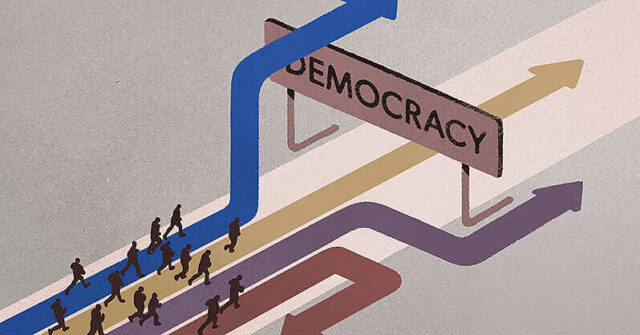The past century has transformed democracy into a massive shape, socially, economically, and technologically. Now, the 21st century is facing several challenges and creating opportunities for different democratic systems to work differently and engage citizens more widely.
Probably one of the biggest challenges that modern democracies face is political polarization. One of the real threats to democratic discourse and governance is the rise in ideological differences between political parties and societies. In many countries, partisan gridlock and extreme viewpoints set the scene for legislative stagnation and weaken democratic institutions.
Technology has also reshaped democracy by its very use of social media and digital platforms, which have transformed political communication and engagement. Such technologies can create opportunities for democratic participation, offering new channels for voter mobilization and activism. Still, they are not without risks: the most conspicuous involve misinformation, cyber-attacks, and privacy risks—all areas in need of appropriate regulatory frameworks with respect to democratic integrity while taking care not to stifle innovation.
The rise of authoritarianism is one of the most serious challenges to democracy today. Many diverse regions have had leaders who used their rule to undermine democratic norms and restrict freedom of the press and political opposition. These developments challenge democratic governance and add to the need for vigilance in advocacy to protect democratic values.
Yet, there are also opportunities, particularly, for the enhancement of democracy. Civic technology and digital tools could be leveraged toward enhancing transparency, making citizen engagement easier, and rendering democratic institutions more responsive. These innovations in participatory governance, from online consultation mechanisms to crowdsourcing policy ideas, empower citizens and democratic decision-making.
Educational initiatives aimed at civic literacy and engagement will be very instrumental if a strong democratic culture is to be cultivated. Citizens’ knowledge of their rights, duties, and how democratic institutions work contributes to an informed electorate and citizens who are able to actively participate.
Still, there is the need for international cooperation and support in democracy. Democracies can cooperate to respond to common problems while sharing good practices and supporting democratic development in regions suffering political repression.
In sum, the pathway of democracy in the 21st century is one both of challenge and opportunity. Political polarization, technology change, and rising authoritarianism pose serious threats, but innovations in civic technology, education, and international cooperation present some alternative paths forward to strengthen and further democratic governance.








